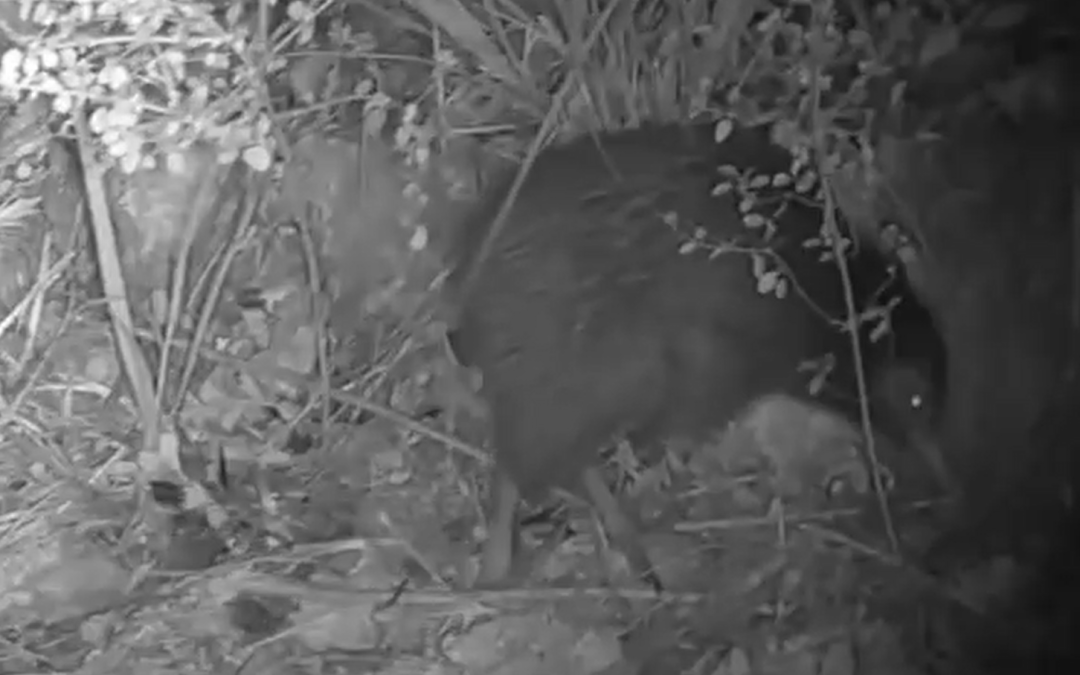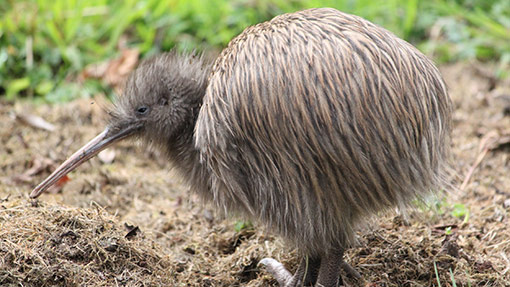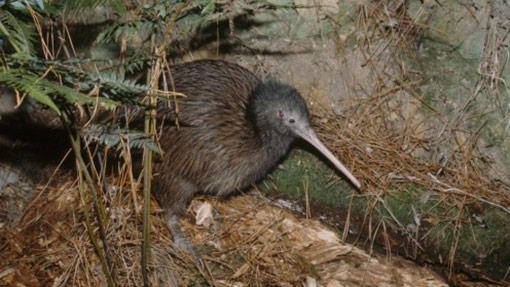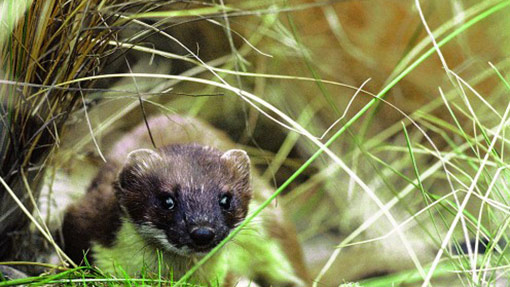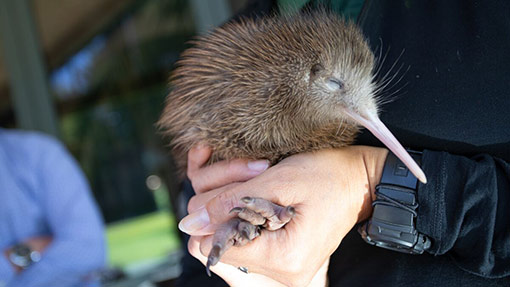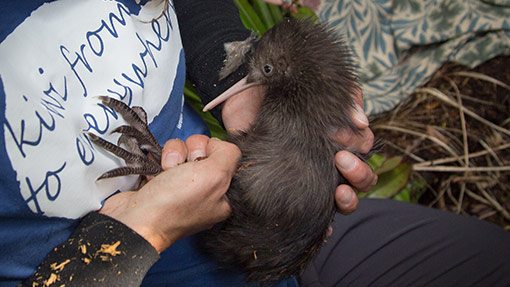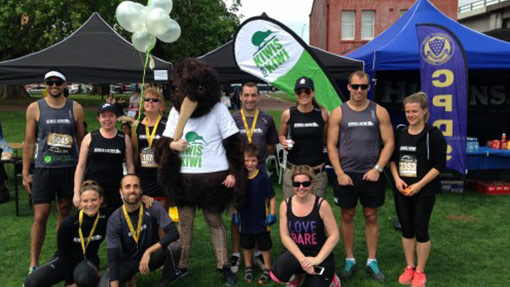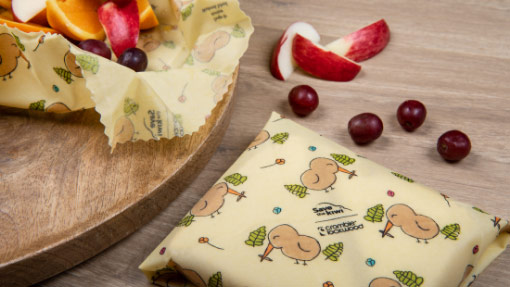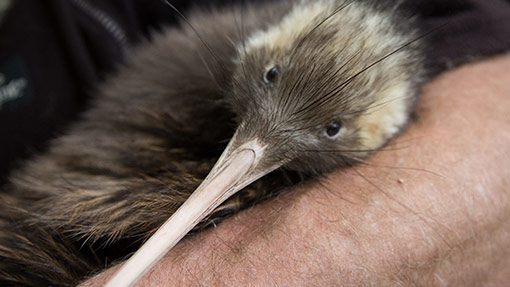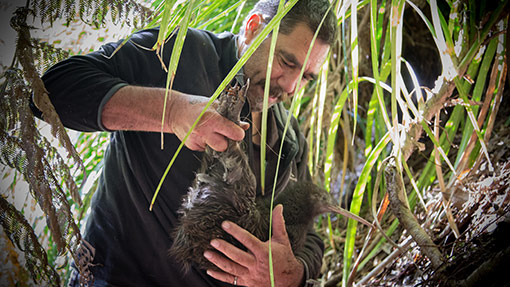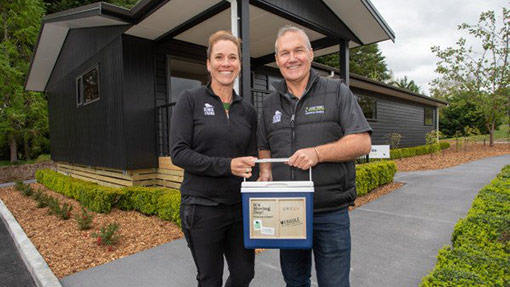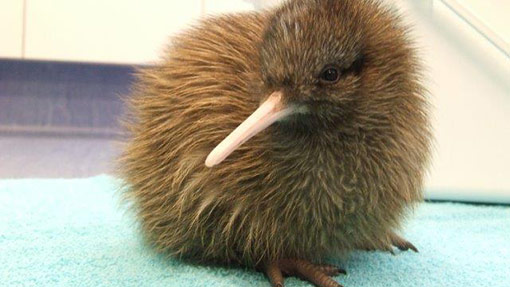He pīpī kiwi kua whānau mai i Waiheke, ki te whei ao, ki te ao marama!
Kua harikoa i te whanautanga mai o te pīpī kiwi tuatahi ki te motu o Waiheke. He tohu nui tēnei ki a mātou kua whakatinanahia te tūmanako me te wawata o te hapori me ngā iwi kia tupu te kāhui kiwi ki te moutere o Te Ārai Roa.
A kiwi chick has been born on Waiheke, into the world, the world of light!
We are delighted to announce the birth of the first kiwi chick on Waiheke Island. This is a great sign for us that the hopes and aspirations of the community and the tribes for the kiwi colony to grow on the island of Te Ārai Roa have been realised.
-Herearoha Skipper (Ngāti Paoa)
First wild kiwi hatch on Waiheke Island
Trail camera footage near the North Island Brown kiwi nests on Waiheke show that the first chick has hatched. The parents of this chick, who were already a pair when they were brought to the island, began nesting in late July this year and landowners, volunteers, and Save the Kiwi have been monitoring their progress since then. The chick likely hatched sometime within the last couple of weeks.
Kiwi chicks absorb their yolk sac before venturing out of their burrow and will be able to survive without feeding for several days. They are independent and will not need to be fed by their parents. At this age, their beaks may not be strong enough to dig into the ground, and they will forage for insects in the leaf litter. Footage shows that the chick has been exploring the area around the nest site.
The transmitter of the male kiwi indicates that he is still incubating and we’re likely expecting another chick in the coming days. After this next egg hatches, the pair may nest again for this season. There are four kiwi pairs being monitored and there is another nest we currently know about, so more chicks are expected over the breeding season.
Emma Craig shares her excitement about the hatching, “We’re absolutely stoked. This is a huge milestone for the kiwi released earlier this year and we’ll be monitoring the chicks through trail cameras. We’re hopeful this one will make it to adulthood but we always remember that kiwi survival isn’t one hundred percent, and losing some individuals is part of the reality of growing a wild kiwi population.” More adult kiwi will also be translocated from Pōnui island to Waiheke in early 2026.
Protecting the kiwi on Waiheke
The kiwi on Waiheke are thriving thanks to decades of pest control initiated by the Fenwick family on Te Matuku Peninsula. This is continued by both the current landowners and Te Korowai o Waiheke who spearhead the predator control on Waiheke island. Emma adds “One of the best ways to ensure that this chick and future chicks will survive, is to continue the ongoing stoat trapping conducted across the whole island.”
If you would like to support kiwi on Waiheke, you can support the pest control of Te Korowai of Waiheke and report a stoat to them if you see any.
Emma also mentions that this is a great reminder to keep your dogs contained at night, and on a lead and under control when walking around the eastern end of the island, especially as kiwi are dispersing from the release site. If you are a visitor to the area (e.g. a tradesperson) consider leaving your dog safely at home. Unlike other birds, kiwi do not have breastplates and chest muscles to protect their internal organs. A gentle nudge from a curious dog can crush their delicate ribcage and organs, so keeping your dog under control is one of the best ways you can protect them, especially when out on a walk.
For those with working dogs, there will be Kiwi Avoidance Training sessions in November which, combined with responsible dog ownership, can act as an added layer of protection to ensure dogs do not interact with kiwi. Book a session here: https://www.kiwiavoidancetraining.nz/book
We would like to acknowledge our partners Ngāti Paoa and Ngāi Tai Ki Tāmaki, and the support of the landowners of Te Matuku peninsula, the generous donors who have funded this work, Te Korowai o Waiheke, and the Chamberlin family of Pōnui island where the kiwi were translocated from earlier this year.
